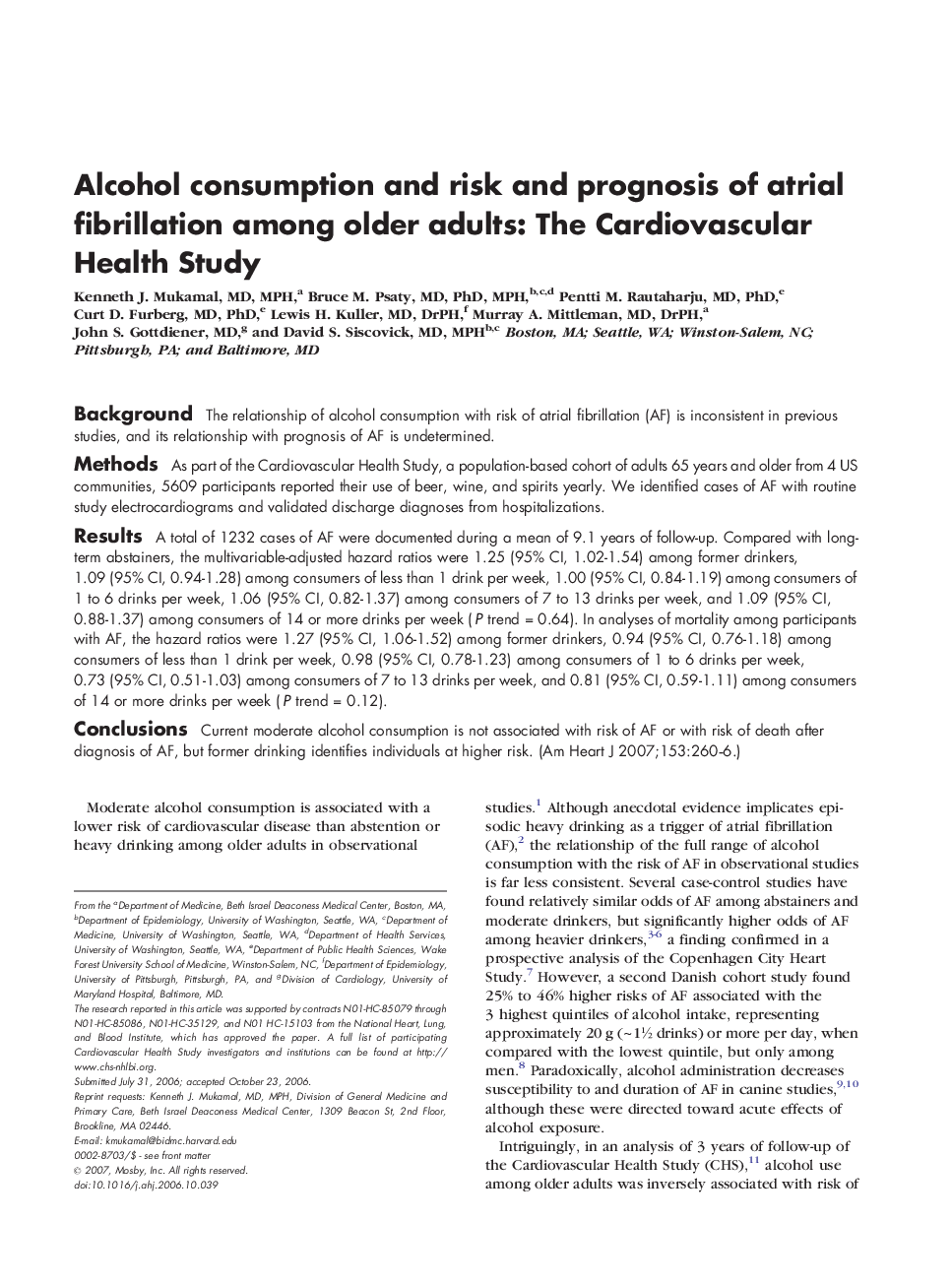| Article ID | Journal | Published Year | Pages | File Type |
|---|---|---|---|---|
| 2850029 | American Heart Journal | 2007 | 7 Pages |
BackgroundThe relationship of alcohol consumption with risk of atrial fibrillation (AF) is inconsistent in previous studies, and its relationship with prognosis of AF is undetermined.MethodsAs part of the Cardiovascular Health Study, a population-based cohort of adults 65 years and older from 4 US communities, 5609 participants reported their use of beer, wine, and spirits yearly. We identified cases of AF with routine study electrocardiograms and validated discharge diagnoses from hospitalizations.ResultsA total of 1232 cases of AF were documented during a mean of 9.1 years of follow-up. Compared with long-term abstainers, the multivariable-adjusted hazard ratios were 1.25 (95% CI, 1.02-1.54) among former drinkers, 1.09 (95% CI, 0.94-1.28) among consumers of less than 1 drink per week, 1.00 (95% CI, 0.84-1.19) among consumers of 1 to 6 drinks per week, 1.06 (95% CI, 0.82-1.37) among consumers of 7 to 13 drinks per week, and 1.09 (95% CI, 0.88-1.37) among consumers of 14 or more drinks per week (P trend = 0.64). In analyses of mortality among participants with AF, the hazard ratios were 1.27 (95% CI, 1.06-1.52) among former drinkers, 0.94 (95% CI, 0.76-1.18) among consumers of less than 1 drink per week, 0.98 (95% CI, 0.78-1.23) among consumers of 1 to 6 drinks per week, 0.73 (95% CI, 0.51-1.03) among consumers of 7 to 13 drinks per week, and 0.81 (95% CI, 0.59-1.11) among consumers of 14 or more drinks per week (P trend = 0.12).ConclusionsCurrent moderate alcohol consumption is not associated with risk of AF or with risk of death after diagnosis of AF, but former drinking identifies individuals at higher risk.
